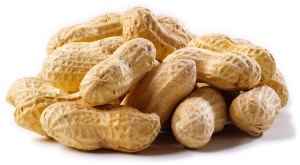Protein Sources for Vegetarians
The word “protein” is derived from the Greek word “proteios”, which means primary or holding first place. The way name suggest this group of components are the most important cell constituent. Protein is present in all cells of the body. It is present in variable level in different tissues of the body like muscles contain about 20% where as in blood plasma it is 7%.
Proteins are very complex nitrogenous organic compounds built up of smaller units called amino acids. There are about 21 amino acids in the body. Most of the amino acids can be synthesised in the body but few can not be synthesised and to be provided in the food. Since it is essential to be provided in food for normal functioning of the body, they are called essential amino acids. There are eight essential amino acids and they are isoleucine, leucine, lysine, methionine, phenylanine, tryptophan, threonine and valine. In infants apart from these amino acids histidine is essential to be provided in food. It is wrong to think that since non-essential amino acids can be synthesised in the body, their inclusion in the diet has no value. Some non-essential amino acids can be synthesised only from other essential amino acids so if they are not supplied in the diet some of the essential amino acids will have to be used for their synthesis.
Sources of proteins
There are two broad categories sources of proteins:
- Animal Sources – eggs, milk, fish,etc.
- Plant sources – peanuts,pulses and legumes, cereals, nuts, beans, oilseeds etc
Class I proteins are derived from animal sources since they contain all essential amino acids needed by the body. Egg protein is considered as the reference protein because of its high biological value and digestibility.
Class II is derived from pulses and legumes, cereals, vegetables, nuts and they do not contain all the essential amino acids they lack in one or more amino acids. Individually they may be lacking in one or more amino acids but combinations make it available of all amino acids. For example cereal and pulse combination is better than consuming only pulse or only cereal.
Being a vegetarian is one of the healthiest way of living. But quite often people find it hard to get enough nutrients especially when it comes to protein. Being a vegetarian throughout my life, I have spent countless hours trying to find the best possible diet that has all the essential nutrients. But the hardest task was to find a reliable rich source of protein. I have compiled a list of good sources of protein for vegetarians:
Source protein/100g
- Lentil 26
- Cheddar Cheese 25
- Peanuts 24
- Fenugreek seed 23
- Almond 21
- Walnut 15
- Wheat flour 12
- Cottage cheese 11
- Yogurt(non fat) 10
- Kidney Beans 9
- Milk 8(250ml)
Recommended Allowance
For active individuals, the recommended amount is 1 g of protein for every 1 pound of body weight. For healthy individuals with a sedentary lifestyle, the amount can be as low as 1g for every kilogram of weight.
